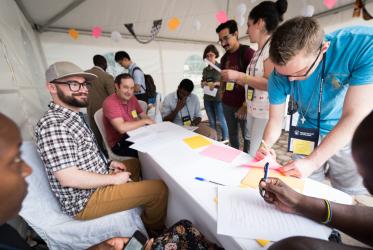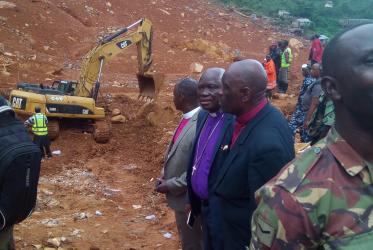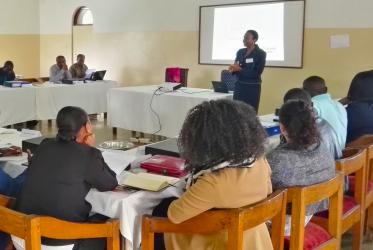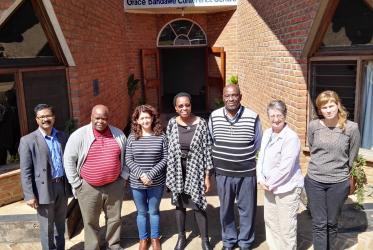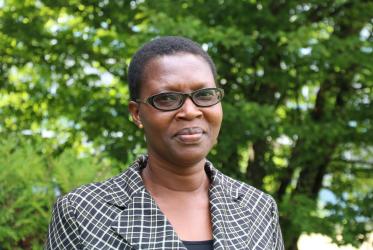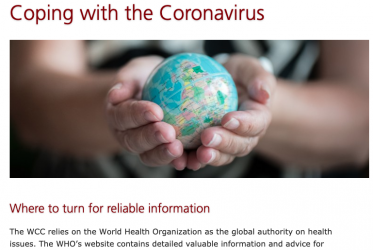Displaying 41 - 60 of 111
‘Sokoni’ transforms marketplace into mission
13 March 2018
GETI students plant trees, in service for greener future
07 March 2018
Conversation on HIV “must continue,” Faith Networking Zone shows
07 December 2017
“Good healthcare a right, not a privilege,” says WCC-EAA
11 October 2017
In Zambia, foreign investors complicate “economy of life”
06 September 2017
GEM School: integrating theology and economics
05 September 2017
African youth takes stand at first ever WCC Eco-School
03 August 2017
A communicator on the move
10 July 2017

